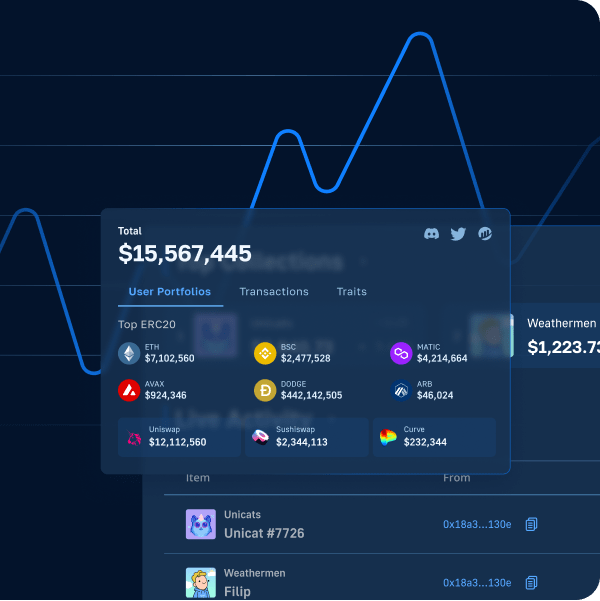Are you seeking the simplest way to run ZetaChain RPC nodes? If so, you’re in the right place! In this guide, we’ll introduce you to Moralis—the industry’s leading node provider. With our straightforward user interface, you can easily set up a free node on ZetaChain with just a few clicks. Here’s a quick three-step breakdown of the process:
- Step 1: Sign up for a free account with Moralis.
- Step 2: Login, go to the ”Nodes” tab, click the ”+ Create Node” button, and set up your ZetaChain node:
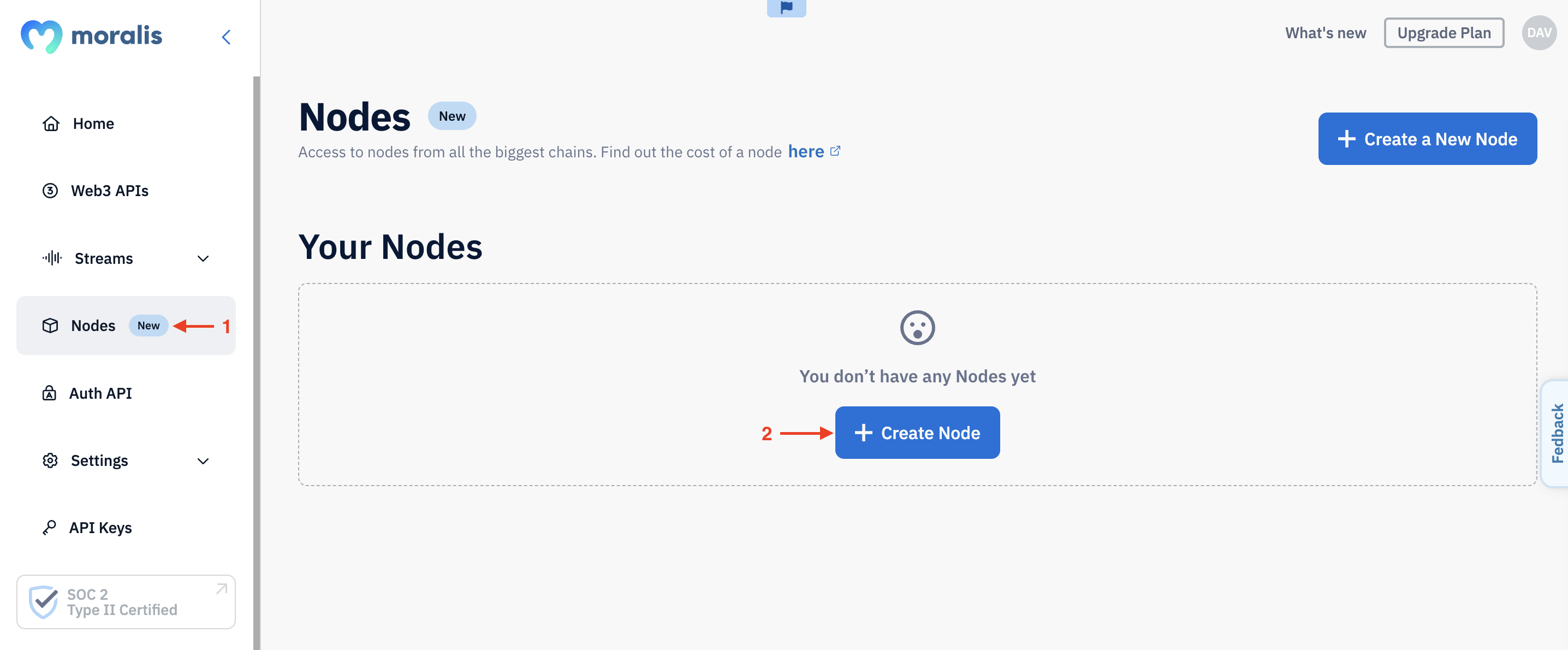
- Step 3: Copy and integrate one of your node URLs into your project:
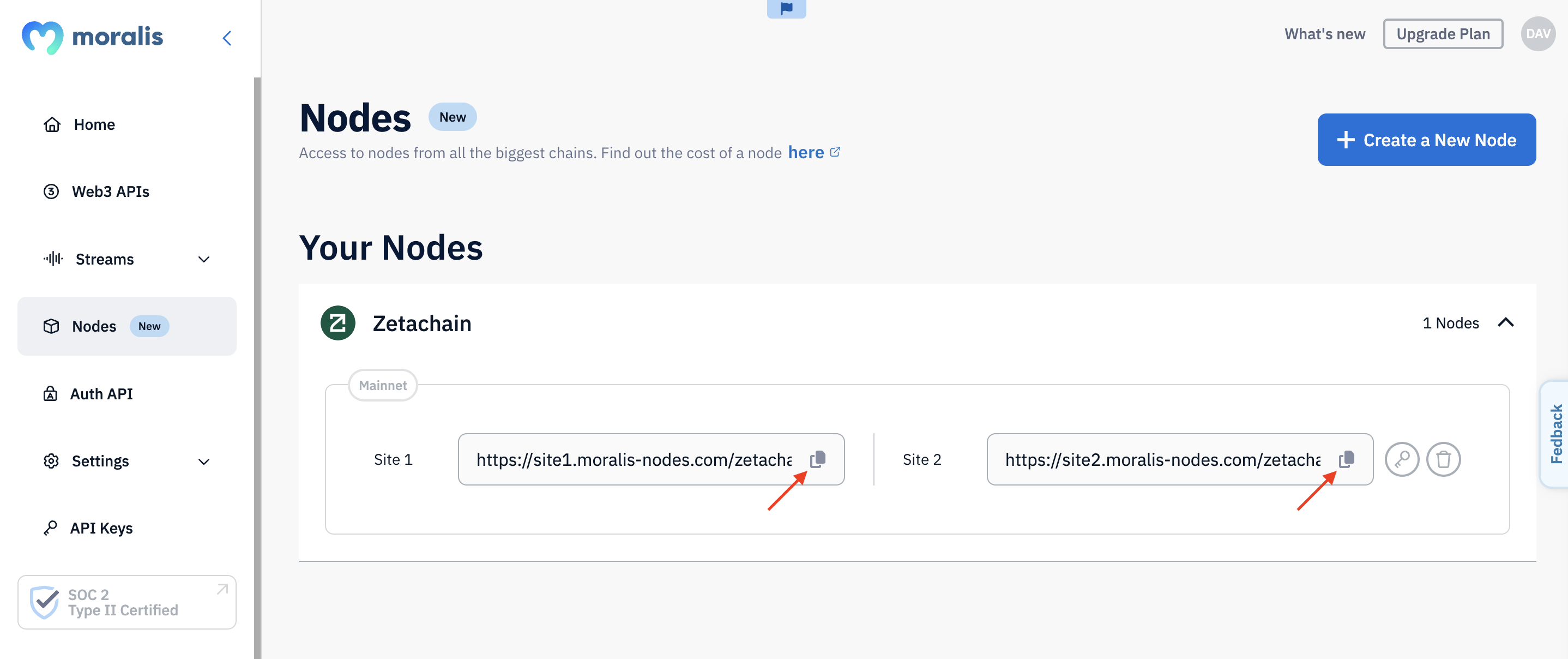
That’s it! Setting up ZetaChain RPC nodes is simple with Moralis. For a more detailed breakdown of the process, join us in this tutorial!
Ready to set up your own ZetaChain nodes? Sign up with Moralis for free and gain immediate access to our premier node service!
Overview
Setting up ZetaChain RPC nodes from scratch can be a challenging task due to the substantial bandwidth, computational power, and storage capacity required. This makes the process not only time-consuming but also potentially expensive. However, you can avoid these challenges by using a node provider like Moralis, which simplifies the setup process and eliminates the need for extensive resources!

Moralis simplifies the process by handling all the underlying complexities of operating nodes. As such, with our intuitive point-and-click interface, you can easily set up a free RPC node for ZetaChain, saving time and resources that can be better spent on other crucial aspects of developing decentralized applications (dapps).
Want to know more about how this works? Join us in this article as we walk you through the entire process of running ZetaChain RPC nodes. Let’s dive in!
What is ZetaChain?
ZetaChain—launched in 2024—is a pioneering layer-1 blockchain platform designed to unify the fragmented crypto space. With its Universal EVM, ZetaChain provides an environment that supports the development of secure, simple, and omni-chain applications capable of interacting with any EVM-compatible blockchain. This results in a single point of access to the entire Web3 ecosystem!
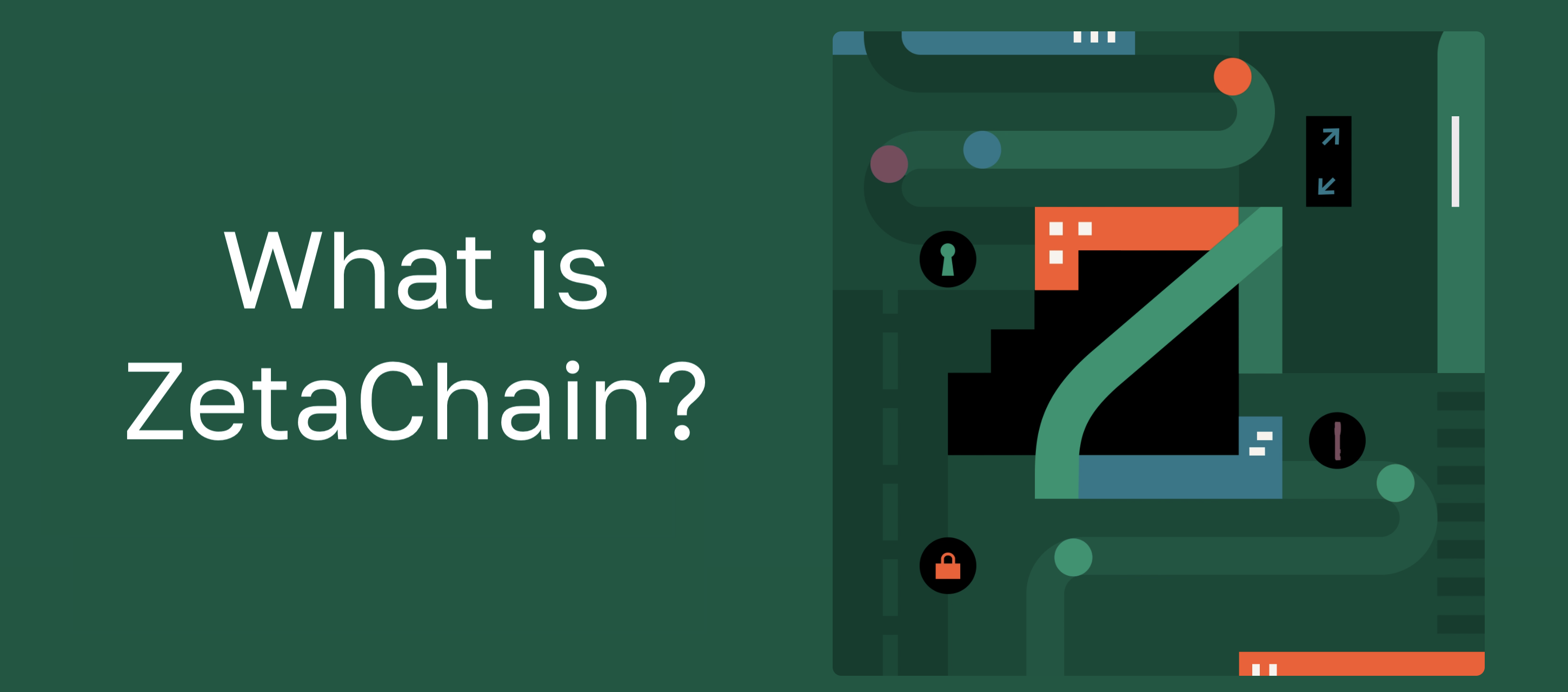
The decentralized and public ZetaChain is built on the Cosmos SDK and Comet BFT consensus. Moreover, the network’s unique feature is the Chain Abstraction Framework (CAF), which enables omni-chain connectivity to other networks.
CAF is accessible through the Universal EVM—an environment that can be called from any chain, call contracts on other blockchains, and manage native assets on any network. The implementation of CAF results in a more seamless user experience, where the majority of dapps can be used from a single place.
Now that you have an overview of ZetaChain, let’s delve into the key benefits of building on this innovative network!
Benefits of Building on ZetaChain
Building dapps on ZetaChain offers numerous advantages. Below are four prominent examples:
- The First Universal Blockchain: With ZetaChain’s Universal EVM, you can build omni-chain dapps that span multiple EVM-compatible networks, greatly simplifying the development of cross-chain projects.
- Seamless User Experience: ZetaChain’s unified interfaces allow users to effortlessly interact with assets and data across the entire Web3 ecosystem. This eliminates the hassle of managing multiple wallets, providing a more streamlined user experience.
- Future-Proof Dapps: Deploy your project with ZetaChain’s Universal EVM to ensure it is future-proof, granting universal access to any EVM-compatible blockchain.
- High Security: ZetaChain dapps settle assets on their native chains using straightforward logic, offering a simplified and secure user experience.
What are ZetaChain RPC Nodes?
ZetaChain RPC nodes are computers and other devices that participate in the network by performing various critical tasks. These tasks include validating transactions, monitoring operations on connected chains, storing data, and much more. The ZetaChain network comprises many nodes that together maintain the stability and security of the blockchain!
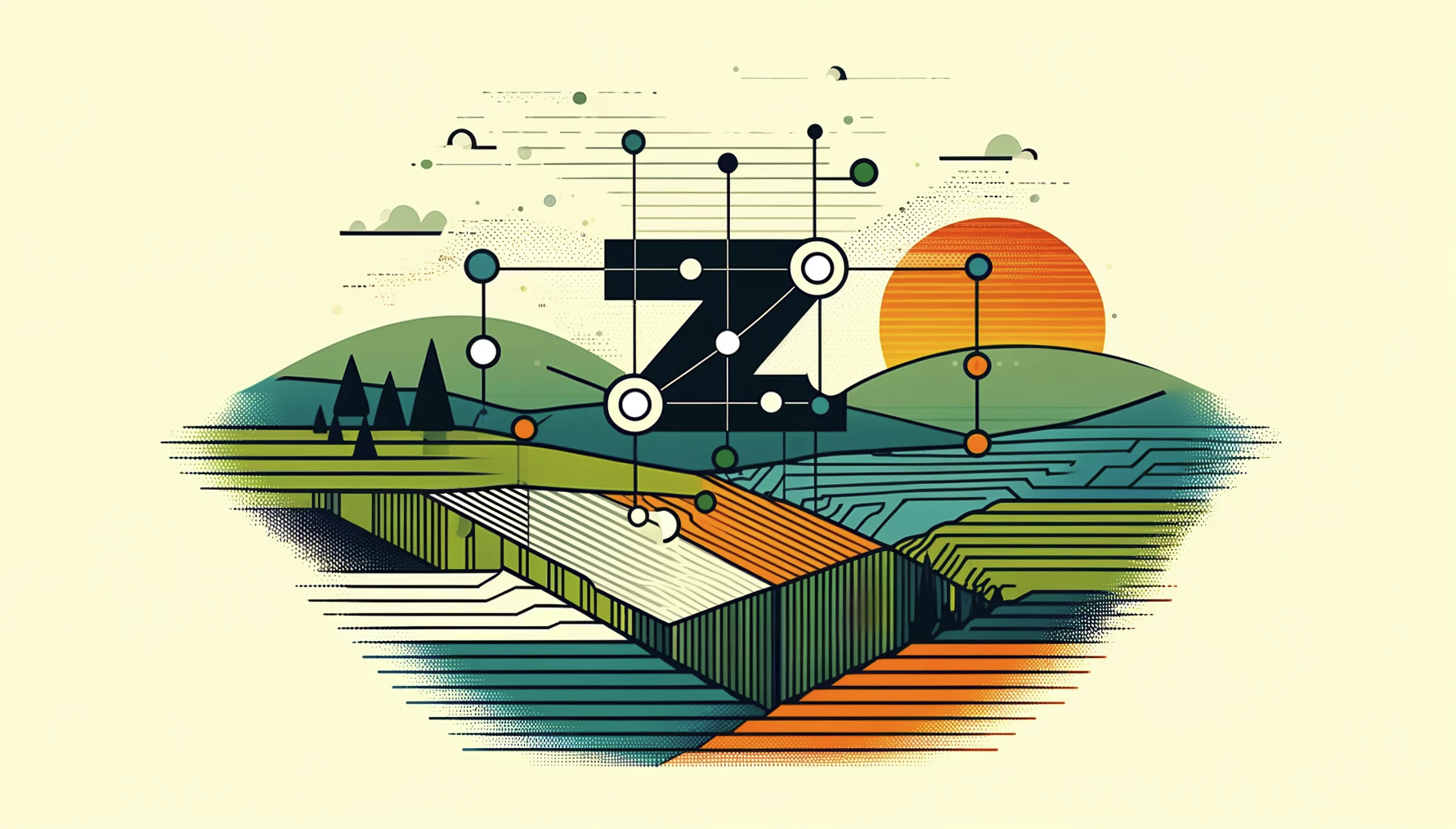
But how are ZetaChain RPC nodes used?
- Transaction Validation: ZetaChain nodes validate transactions and add new blocks to the blockchain. Additionally, they monitor transactions across all connected networks.
- Storage: Nodes are responsible for storing smart contracts and transaction data. This function is vital for maintaining the network’s safety and integrity.
- Dapp Development: ZetaChain nodes serve as gateways to the blockchain, allowing developers to seamlessly interact with the network. This includes both writing and reading on-chain data, which are critical aspects of dapp development.
With this overview of ZetaChain nodes, let’s show you how to set them up using Moralis—the industry’s leading Web3 data provider!
Introducing Moralis – The Easiest Way to Set up ZetaChain RPC Nodes
For setting up ZetaChain RPC nodes, Moralis stands out as the industry’s leading node provider. With our intuitive user interface, you can seamlessly run nodes for over 20 blockchain networks—including ZetaChain—with just a click of a button!
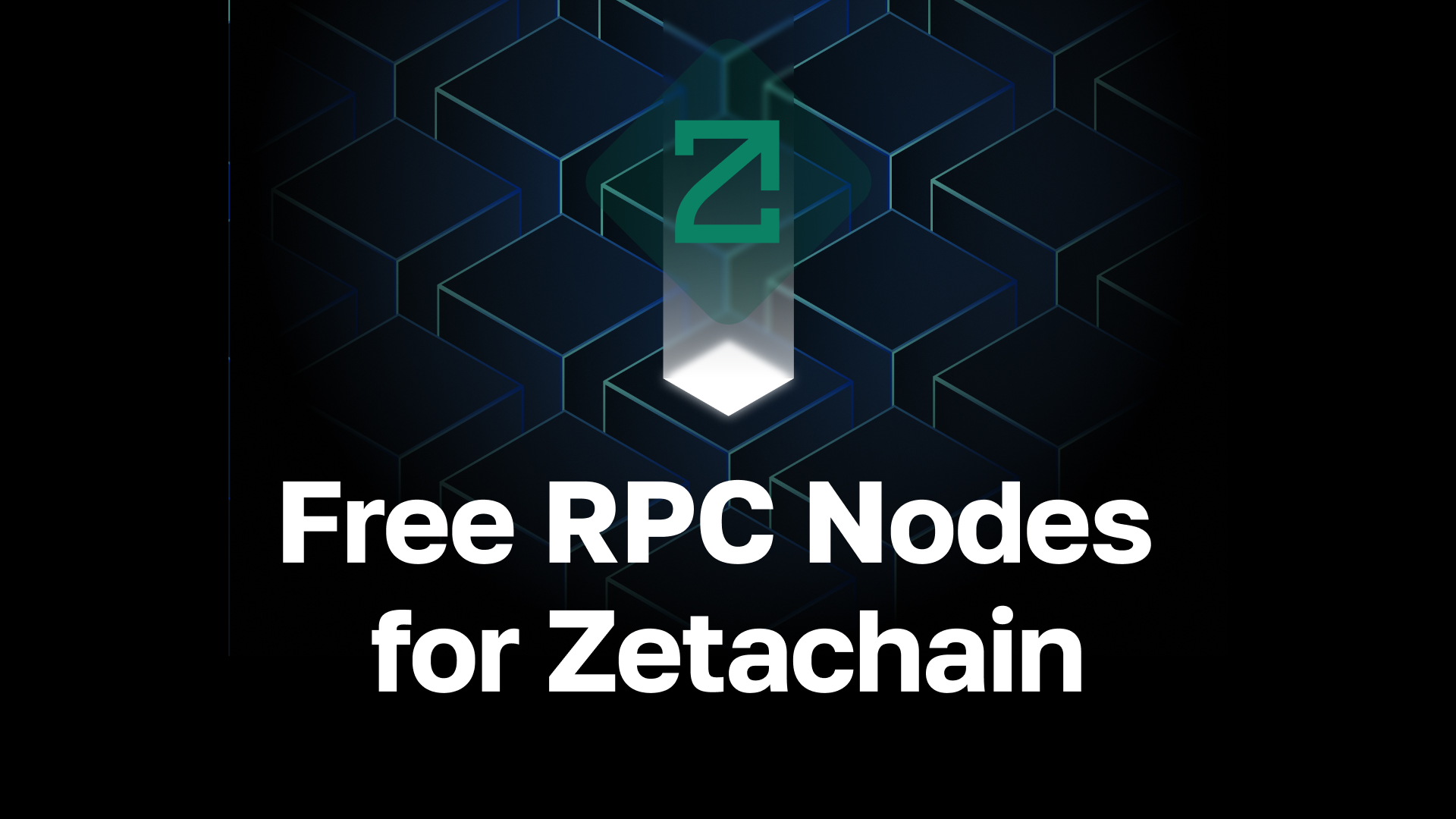
Here’s why Moralis’ nodes are the best choice:
- Speed: Moralis’ nodes deliver unmatched speed, with response times as low as 70 ms. Fetch the data you need instantly, with no delays.
- Reliability: We guarantee 99.9% uptime, ensuring our nodes are always dependable and reliable.
- Security: Protect your user data with Web3’s only SOC 2 Type 2 certified infrastructure provider. At Moralis, we set the gold standard for enterprise-grade data security within the blockchain development space.
Now that you understand the advantages of Moralis’ premier node service, let’s dive into the main tutorial and show you how to set up a ZetaChain node effortlessly!
Tutorial: How to Set Up Free ZetaChain RPC Nodes
The first thing you’ll need to set up a ZetaChain node is a Moralis account. As such, if you haven’t already, make sure to register an account by clicking the ”Start for Free” button at the top right:
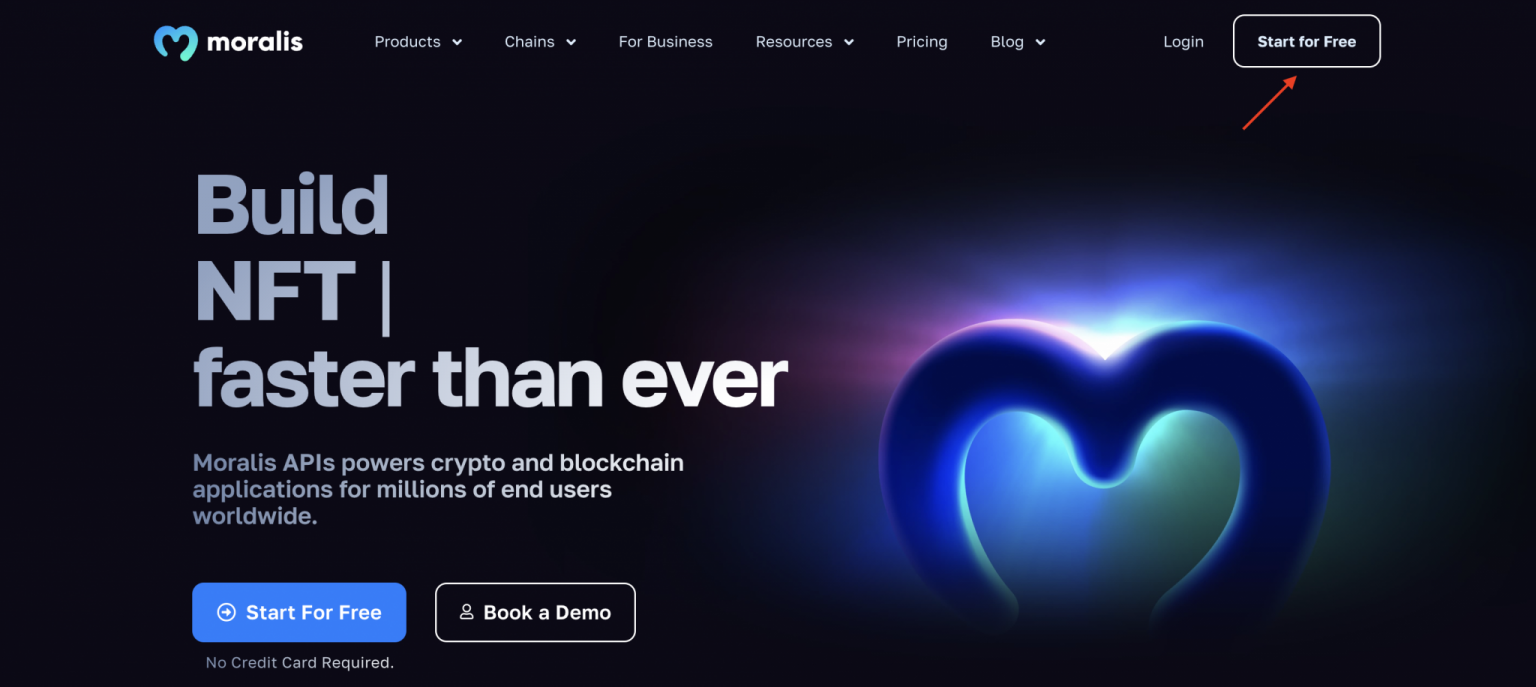
With an account at hand, you can now follow the three steps below to set up your ZetaChain nodes:
- Step 1: Log in, go to the ”Nodes” tab, and click ”+ Create Node”:

- Step 2: Configure your node by selecting ”ZetaChain” followed by ”Mainnet”:
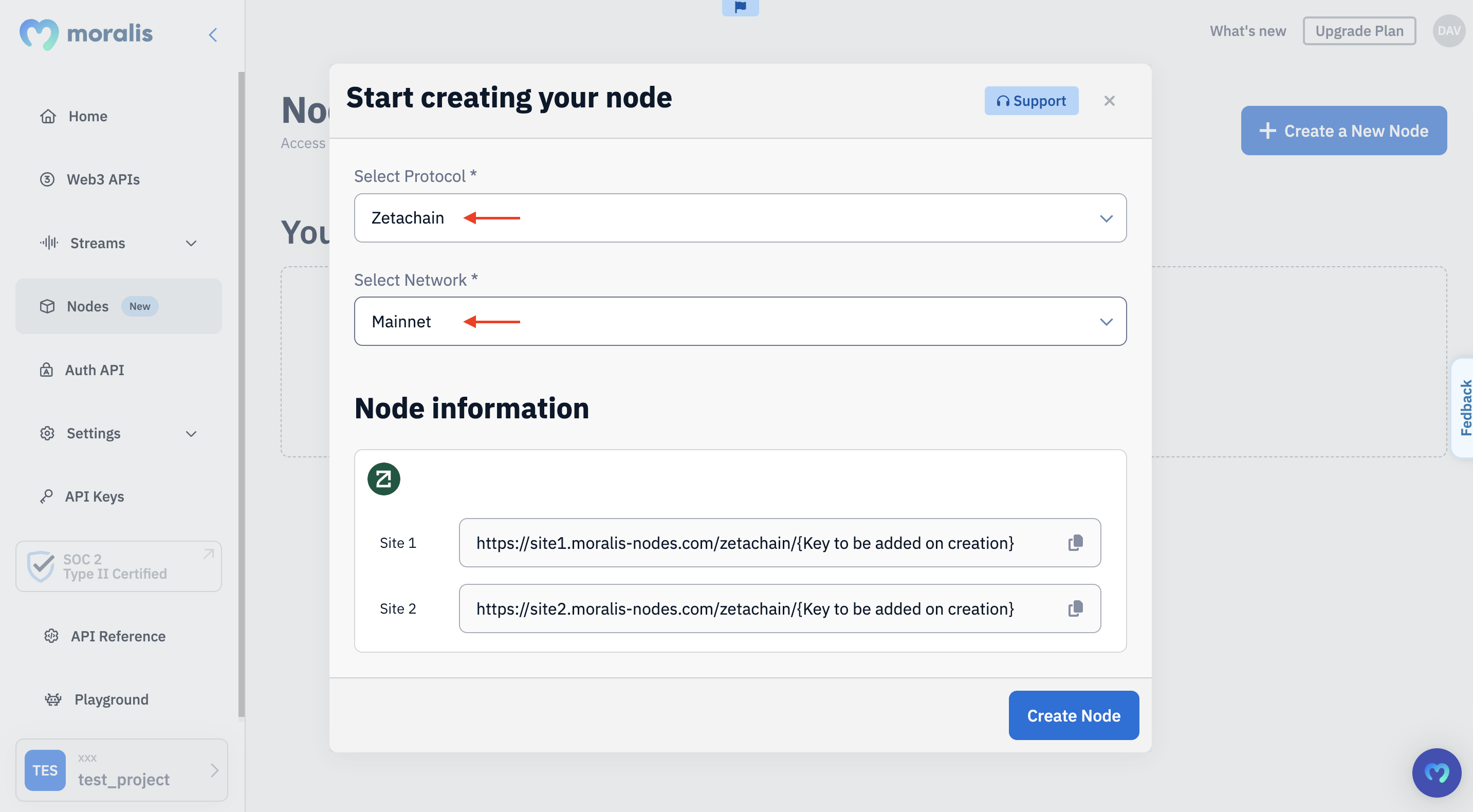
- Step 3: Click the ”Create Node” button:
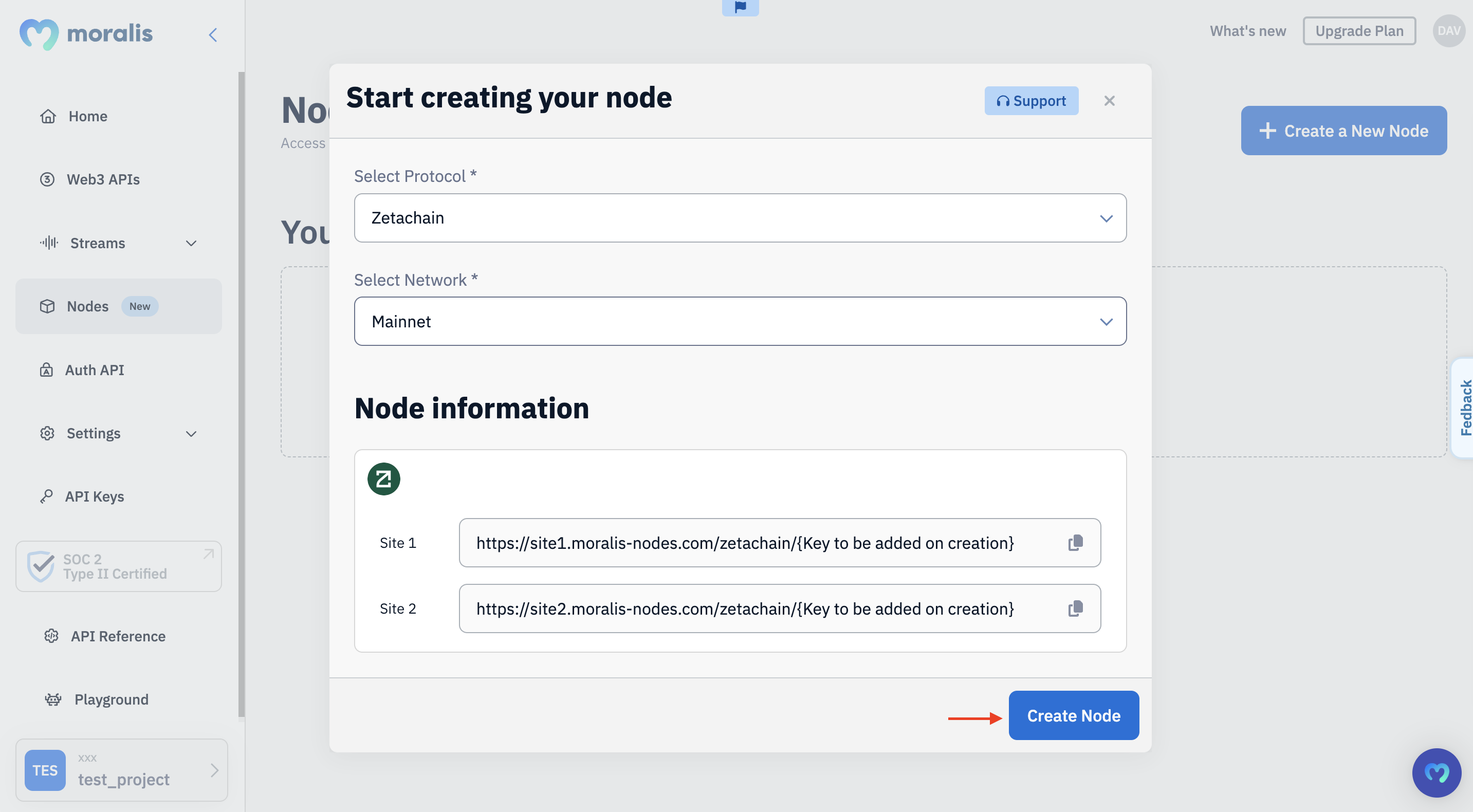
In return, you’ll have received two node URLs that you can copy and integrate into your dapps to interact with the ZetaChain network:

Congratulations! You now know how to run ZetaChain RPC nodes using Moralis!
How to Call Your ZetaChain RPC Nodes in 5 Steps
For this part, we’ll walk you through the process of making RPC calls to your new ZetaChain node. More specifically, we’re going to show you how to fetch the native balance of a wallet using Ethers.js!
Before you proceed, make sure you have the following ready:
- Node.js v14+
- npm/yarn
From here, follow the steps below:
- Step 1 – Set Up Your Project: Open your preferred integrated development environment (IDE), set up a new folder, and initialize a project with the terminal command below:
npm init
After this, open your ”package.json” file and add “type": "module" to the list:
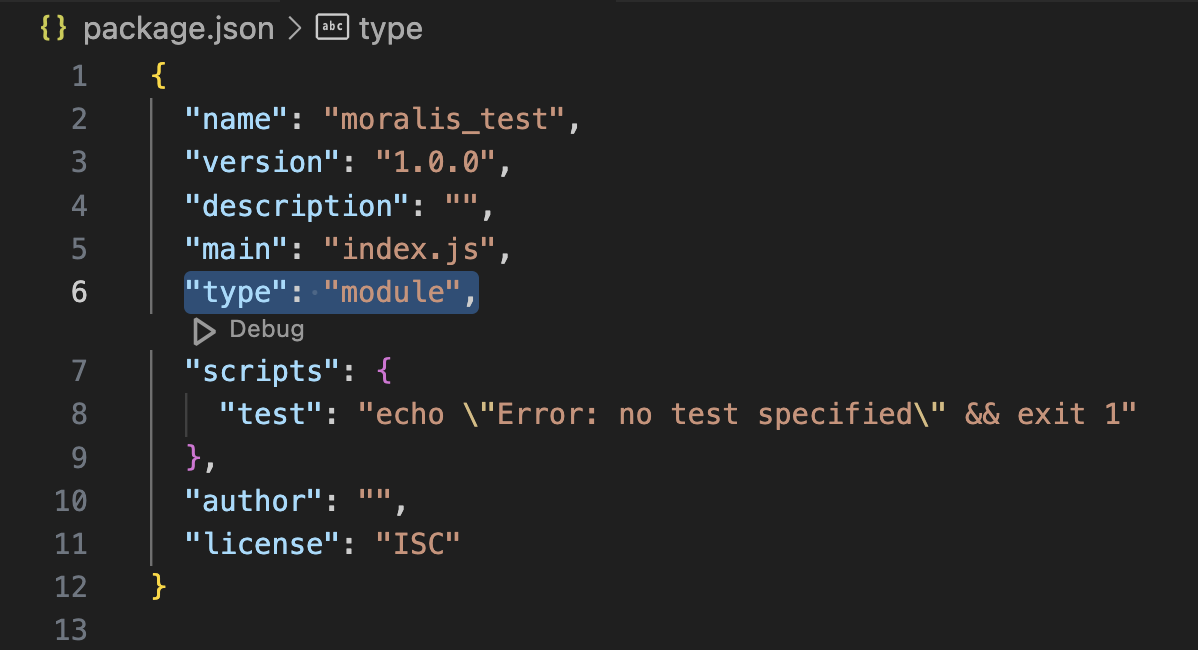
- Step 2 – Install Ethers.js: Install Ethers.js by running the following command in your terminal:
npm install ethers
- Step 3 – Write Your Script: Create a new ”index.js” file and add the snippet below:
import { ethers } from "ethers";
const provider = new ethers.providers.JsonRpcProvider("YOUR_NODE_URL");
const address = "0x000007cf399229b2f5a4d043f20e90c9c98b7c6a";
const balance = await provider.getBalance(address);
console.log("Balance: ", ethers.utils.formatEther(balance));
- Step 4 – Configure the Code: Start by replacing
YOUR_NODE_URLwith one of your ZetaChain node URLs. Next, change theaddressparameter to fit your request:

- Step 5 – Run the Script: Open the terminal and run the command below:
node index.js
In response, you’ll get the native balance of the specified address. Here’s an example of what it should look like:
Balance: 18.495142603455080406
That’s it! You now know how to make RPC calls to your ZetaChain nodes!
If you’re looking for a more detailed breakdown with even more examples of what types of data you can fetch, check out the following Moralis YouTube video:
Limitations of Nodes
While you can use nodes to interact with a blockchain network, it isn’t always the optimal approach, especially when querying on-chain data. To explain why, we’ll now cover three significant limitations of nodes:
- Complex to Query: Nodes can’t handle complex queries, such as, “What specific tokens does wallet X hold?” To get this information, you need to make multiple RPC calls and stitch together the data yourself.
- Chain Specific: Blockchain nodes are tied to specific networks. This means you need to run and maintain a node for each chain you interact with. As you can imagine, this can quickly become expensive if you’re building cross-chain projects.
- Raw Data: When querying nodes, the data retrieved from the blockchain is in its raw form. This data needs to be decoded, interpreted, and formatted before it can be utilized effectively.

So, what’s the best way to tackle these limitations?
The easiest way to query on-chain data is to use a Web3 API provider like Moralis. With our premier APIs, you can effortlessly fetch and integrate decoded blockchain data into your dapps with single requests. To learn more about this, join us below as we dive deeper into Moralis!
Beyond ZetaChain RPC Nodes – Exploring Moralis Further
Moralis is the industry’s premier Web3 infrastructure provider, offering an extensive toolkit featuring nodes for over 20 chains and more than ten specialized APIs. Our suite includes the Wallet API, Token API, Streams API, and many others. Consequently, it doesn’t matter if you’re building a cryptocurrency wallet, decentralized exchange (DEX), or any other platform; we have got your data needs covered!

Why choose Moralis’ Web3 APIs?
- Comprehensive: Our APIs provide enriched responses with both on- and off-chain data, delivering more information with fewer calls. This enhances your developer experience, enabling you to build dapps faster and more efficiently.
- Cross-Chain Compatibility: Our APIs support all major chains, including Ethereum, Polygon, BSC, and Optimism, allowing you to develop cross-chain compatible dapps seamlessly.
- Trusted by Industry Leaders: Over 100,000 developers and enterprises, including Blockchain.com, Opera, and MetaMask, trust and use Moralis.
Now, to highlight Moralis’ benefits further, let’s explore our Web3 API suite a bit more!
Moralis’ Web3 API Suite
In Moralis’ Web3 API suite, you’ll discover over ten specialized Web3 APIs designed for various use cases. Below, we introduce three interfaces that you’ll likely find helpful when building dapps:
- Wallet API: If you’re looking to build cryptocurrency wallets, portfolio trackers, or other platforms that need similar data, then you’ll want to check out Moralis’ Wallet API. This powerful API allows you to fetch any wallet’s history, token balances, profitability, net worth, and more with just a single line of code.
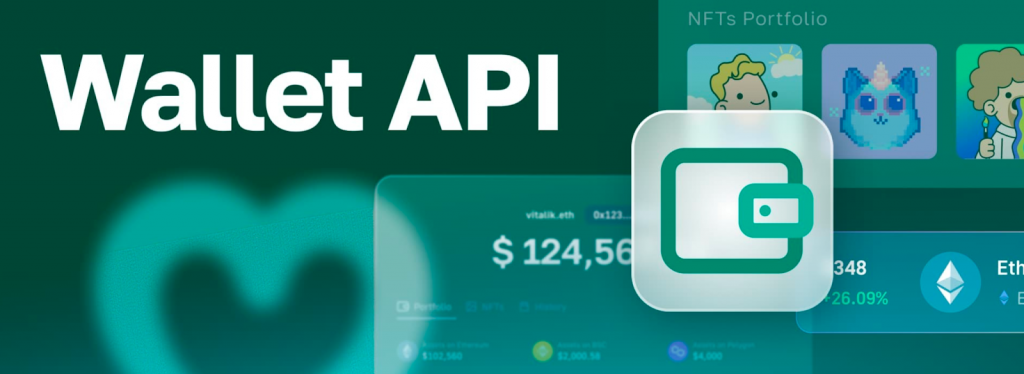
- Token API: The Token API is ideal for accessing ERC-20 data. With this Web3 API, you can easily retrieve token balances, prices, metadata, transactions, and more. It’s perfect for creating token explorers, DEXs, trading tools, and other similar platforms.
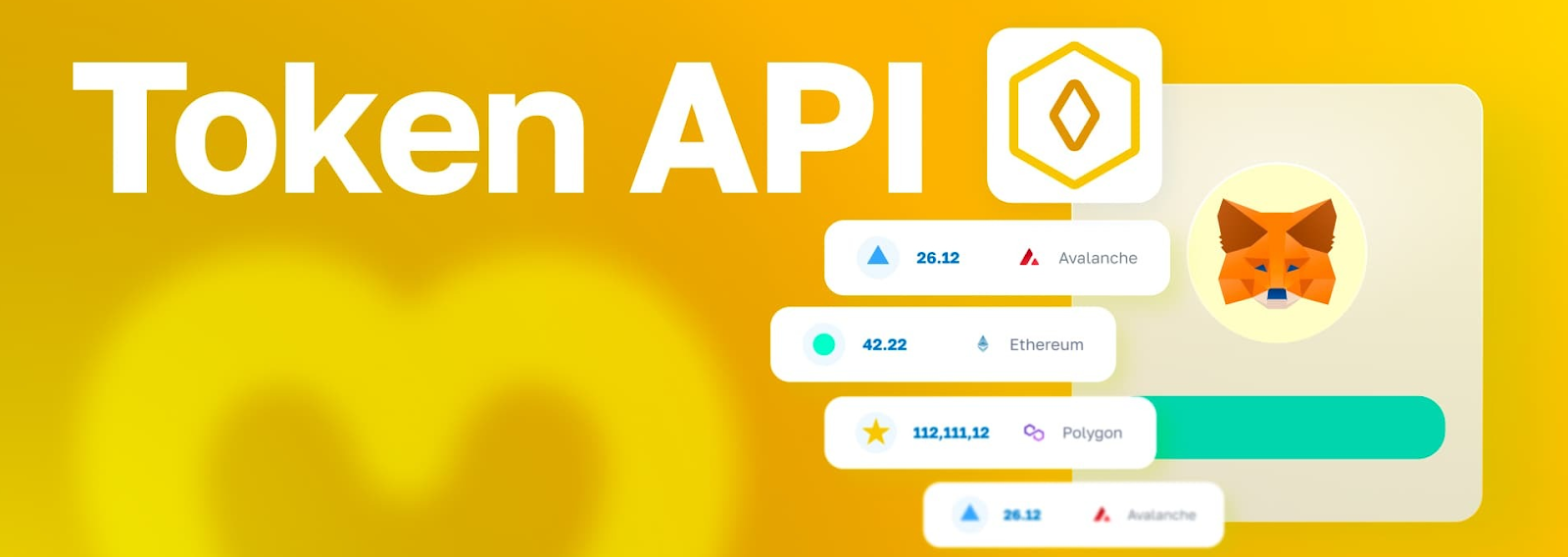
- NFT API: If you’re developing or scaling NFT-based projects, Moralis’ NFT API is indispensable. This advanced tool enables you to obtain NFT balances, metadata, prices, and more with minimal code. It’s the perfect solution for building NFT marketplaces, games, and other related platforms.
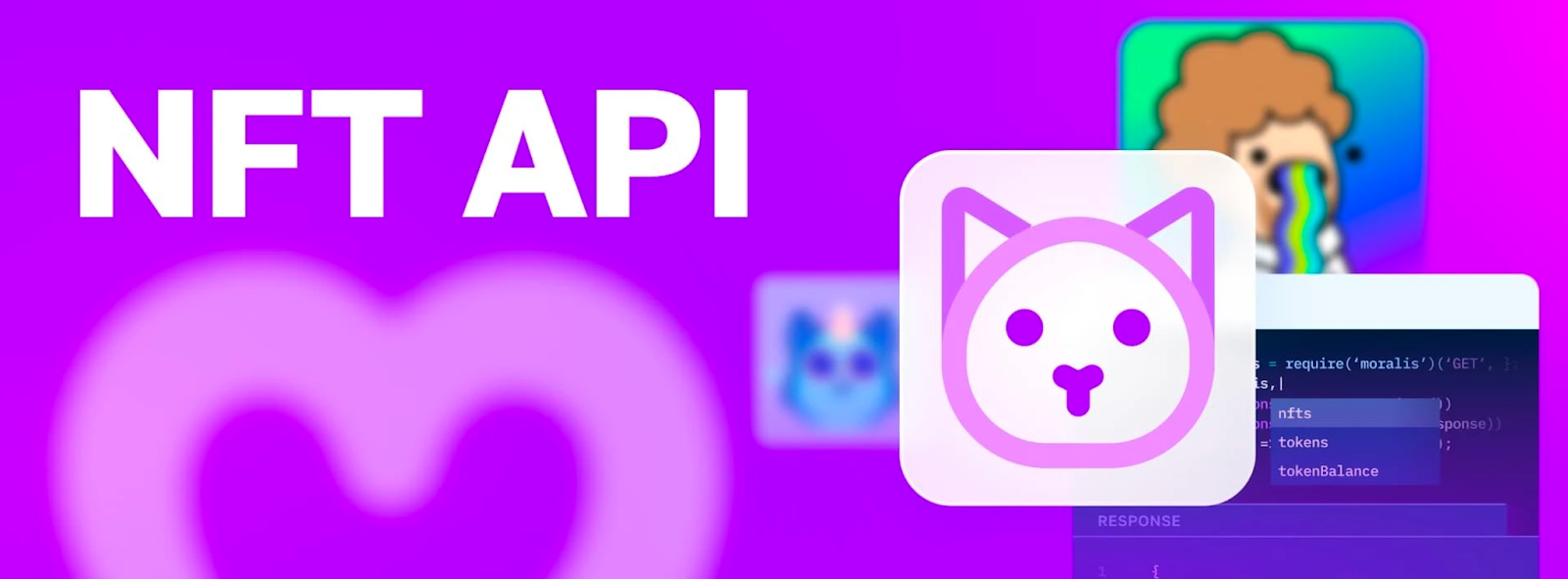
To learn more about these and other premier interfaces, please visit our official Web3 API page!
Summary: How to Set Up a ZetaChain Node with Moralis
Setting up, running, and maintaining a ZetaChain node from scratch can be a tedious task. It requires a complex underlying infrastructure that can be both time-consuming and costly to set up. Thankfully, you can avoid these challenges by leveraging a node provider like Moralis!

At Moralis, we handle all the underlying complexities, making the process of running ZetaChain RPC nodes a breeze. In fact, with our intuitive user interface, you can set up your own ZetaChain node with just a few clicks.
Why choose Moralis’ nodes?
- Speed: Our nodes offer unparalleled speed, with response times as low as 70 ms, ensuring you can fetch data instantly.
- Reliability: We guarantee 99.9% uptime, so you can always depend on our RPC nodes.
- Security: Moralis is the only SOC 2 Type 2 certified Web3 infrastructure provider, ensuring top-notch security for your user data.
If you enjoyed this ZetaChain RPC nodes tutorial, explore more content on our blog, such as articles on Base nodes and Linea nodes!
Ready to set up your own ZetaChain RPC node? Sign up with Moralis for free and gain immediate access to our premier node service and industry-leading Web3 APIs!
